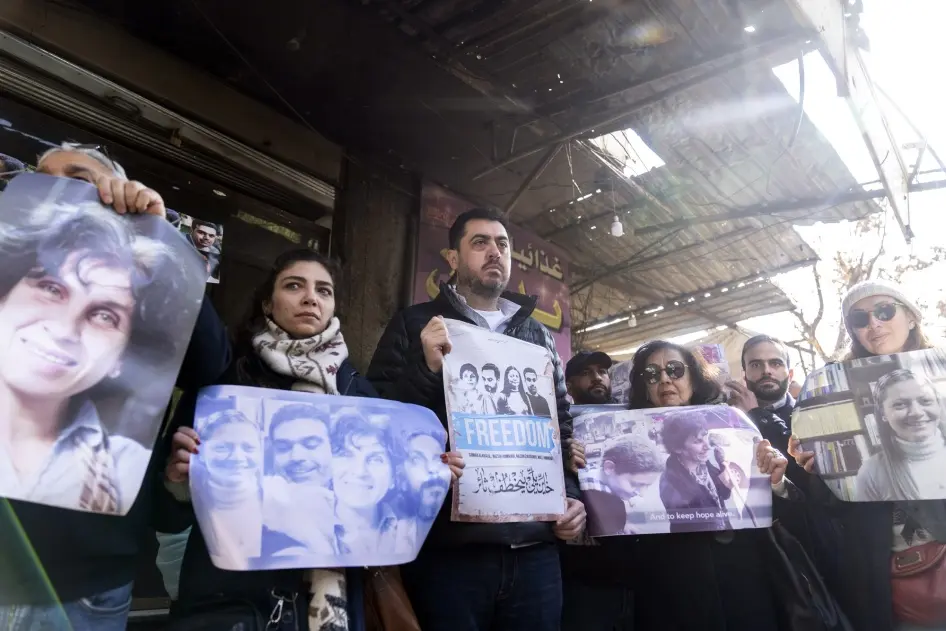In a move that could shape the trajectory of Syria’s fragile post-conflict recovery, the country’s transitional government announced the formation of two long-awaited bodies: the Transitional Justice Commission and the National Commission for the Missing. But while the decrees, issued on May 17, were initially welcomed as signs of institutional progress, rights advocates warn that the Transitional Justice Commission’s limited mandate may undercut its legitimacy before it begins.
The transitional authorities had previously pledged, in the March Constitutional Declaration, to establish “victim-centred mechanisms” to address the legacy of atrocities committed during Syria’s 14-year conflict. Yet the new decree confines the Commission’s remit to violations committed by the Assad regime—excluding abuses perpetrated by non-state actors, including several prominent opposition factions.
“This is a missed opportunity for victim-led justice,” said Alice Autin, Officer with the Communications and International Justice Program. “A credible transitional justice process must include all victims, regardless of who violated their rights.”
The decree offers no clarity on how victims and survivors will be included in shaping or participating in the Commission’s work—raising questions about transparency and inclusivity. The omission is especially glaring in light of recent reports of revenge attacks, sectarian reprisals, and rising digital incitement.
Warnings from Civil Society: A Crossroads Moment
Prominent Syrian human rights advocates, including Fadel Abdul Ghany of the Syrian Network for Human Rights and Radwan Ziadeh, a long-time proponent of transitional justice, have issued stark warnings about the dangers of a narrow or politicised approach. In recent reports and op-eds, both have underscored the urgency of a comprehensive, impartial mechanism to address Syria’s widespread abuses, which include over 200,000 civilian deaths and more than 150,000 enforced disappearances.
Without such a mechanism, they warn, Syria risks descending into a cycle of revenge and lawlessness. “We’re already seeing signs of retaliatory violence in places like Homs, Aleppo, and the coast,” Abdul Ghany said in a recent policy briefing. “If justice doesn’t come from institutions, it will come from the streets—and that is a recipe for renewed chaos.”
Ziadeh, writing in The Syria Review, called for immediate establishment of public hearings, truth commissions, and symbolic acts of national remembrance to anchor Syria’s transition in shared memory and institutional accountability.
The National Commission for the Missing: Cautious Optimism
In contrast, the National Commission for the Missing, also announced on May 17, has been met with cautious optimism, especially by families of the disappeared. Activists and legal experts stress, however, that its success will depend on whether it adopts a rights-based framework, ensures transparent procedures, and actively involves victims’ associations in its work.
Successful models, such as the UN Independent Institution on Missing Persons in Syria, have demonstrated the value of collaboration between international mechanisms and local groups. Analysts say the new Syrian bodies should draw on such experiences to build trust and effectiveness.
Social Fragmentation and the Culture of Hatred
Against this backdrop, Syrian journalist Malek al-Hafez has sounded the alarm over another danger: the erosion of public discourse. In a widely circulated essay, “Syrians Trapped in the Machinery of Hate,” al-Hafez draws parallels between the current wave of hate speech on Syrian social media and the propaganda that fueled the Rwandan genocide. He warns that digital incitement, glorification of sectarian leaders, and misogynistic attacks are deepening the country’s post-conflict wounds.
“When we sanctify individuals,” al-Hafez writes, “we become unwitting agents of hatred toward anyone who does not share our veneration.”
What’s at Stake: Justice as a Foundation for Peace
For many Syrians, justice is not a luxury—it is the precondition for national healing. As legal expert Moatasem Alkilani recently wrote, “You are not merely crafting a legal body—you are shaping Syria’s moral compass.” He argues that no one implicated in past abuses—regardless of affiliation—should be allowed to influence the architecture of justice.
The challenge, as Alkilani, Ziadeh, and Abdul Ghany all argue, is to prevent transitional justice from becoming a tool of selective reckoning. Instead, it must serve as a bridge from fragmentation to citizenship, and from vengeance to rule of law.
The transitional government’s actions in the coming months—particularly whether it expands the Commission’s mandate and ensures genuine victim participation—will determine whether this fragile opening becomes the foundation for peace or another chapter in Syria’s long history of exclusion and impunity.


